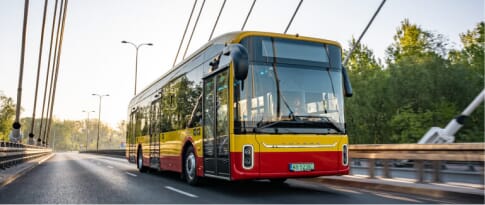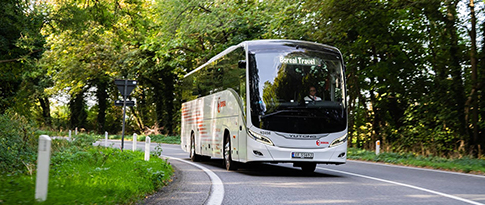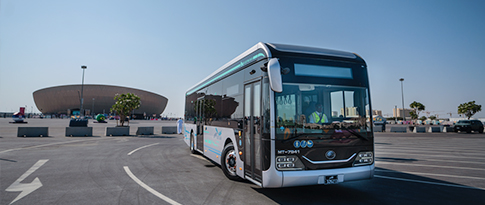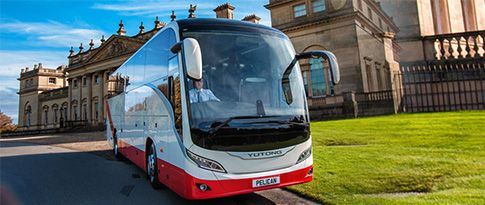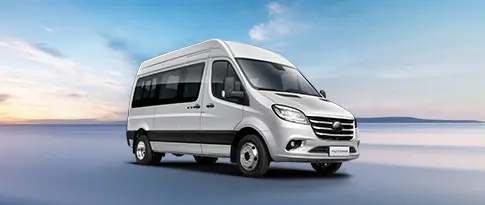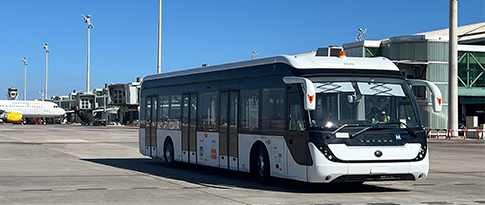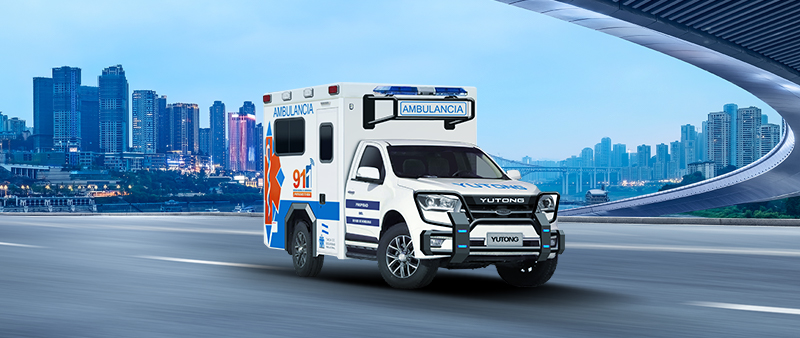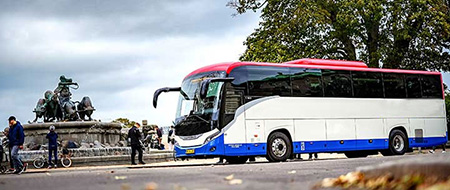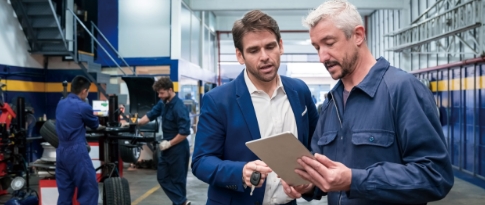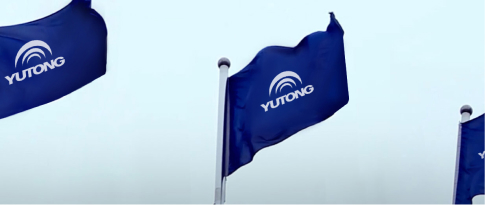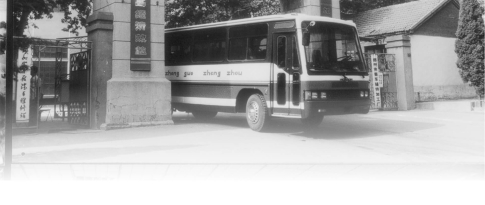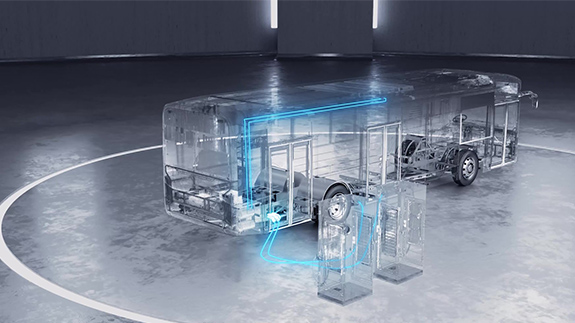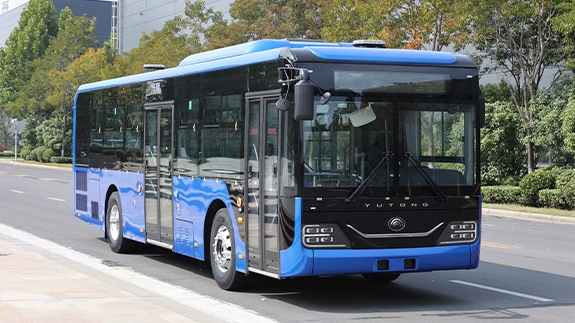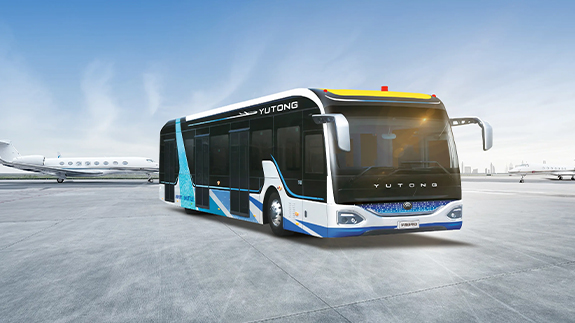Yutong Insight: FWD Coaches vs RWD Coaches - A Field Study in Mozambique and Angola
Mozambique and Angola, on Africa’s southeast and southwest coasts, grapple with challenging road conditions due to their narrow, rugged terrains. Potholes are rampant, making daily commutes tough for locals. The rise in private cars has also worsened traffic and pollution, underscoring the need for an effective public transit system.
To navigate these urban landscapes, front-wheel drive (FWD) coaches and rear-wheel drive (RWD) vehicles offer distinct benefits for a smooth, safe ride. Since 2004, Yutong has been offering excellent transit solutions to these regions, with vehicles designed for durability and fuel efficiency, making them the go-to choice.
This article gives you a guide to understanding the advantages of front-wheel drive coaches and rear-powered coaches and the best options to choose from.
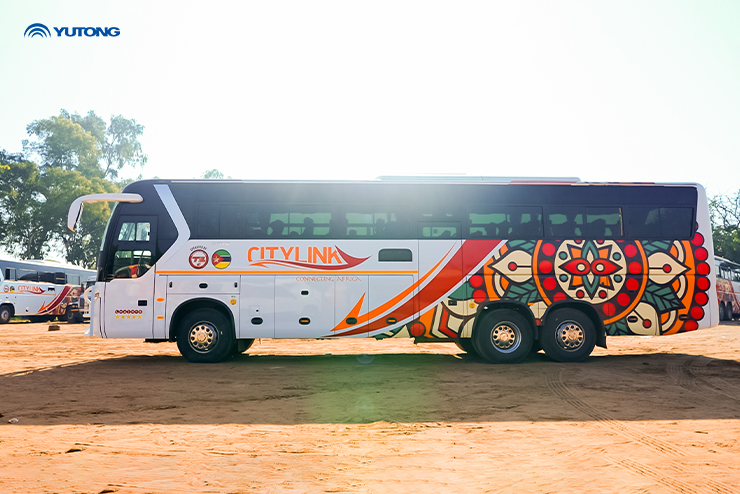
Overview of FWD Vehicles
Front-wheel drive coaches feature a direct link between the engine and gearbox to the front wheels, which pull the vehicle forward without power being sent to the rear wheels.
This design simplifies the vehicle’s structure, effectively reducing manufacturing and maintenance costs. Moreover, FWD coaches offer high fuel efficiency, easy operation, and better driving control, mitigating the risk of oversteering and making them well-suited for Africa’s challenging terrains and increasingly popular in the region.
Overview of RWD Vehicles
Rear-wheel drive coaches place the engine over the rear axle, with no power transferred to the front wheels. They’re renowned for their capacity to handle high horsepower and substantial vehicle weights.
But that’s not all - these coaches can easily tow large loads like trailers or watercrafts. Their incredible powertrain makes them ideal for long-distance travel. However, RWD vehicles typically have less traction than FWD, which can be a drawback on slippery or poor road surfaces.
African Transportation Challenges: Innovative Solutions from Yutong’s Two Coach Models
Public transport in parts of Africa is notably underdeveloped, with some countries having a vehicle count of less than 5,000 per million people.[1] Even in Maputo, Mozambique’s capital, public transport accounts for 9.2% of the city’s transport options. [2]
On the other hand, informal public transport makes up 32.9% of the total local transport. The same is the case with Angola, where poor road conditions restrict coach services, which are often overcrowded and poorly maintained. This calls for coaches with high cost-efficiency, durability, and adaptability.
Yutong ZK6126D
For Mozambique’s tough roads, Yutong FWD ZK6126D stands out with its trafficability, reliability, safety, and ease of maintenance, making it a fitting solution for the region’s transportation challenges.
Trafficability
The Yutong ZK6126D prioritizes power and trafficability, featuring a 13° approach angle and departure angle that enhances its mobility. This design allows the ZK6126D to easily navigate complex terrains, demonstrating strong adaptability whether climbing slopes or crossing uneven surfaces. Especially under the variable road conditions in Africa, these characteristics ensure the vehicle’s performance is both efficient and dependable.
Cost-effectiveness
Yutong ZK6126D enhances durability with high-stress materials in its leaf springs, extending their lifespan and reducing downtime for replacements. A new shock absorber bracket design boosts stability on rough roads, improving ride comfort.
The ZK6126D also incorporates a waterproof structure for the door pump solenoid valve, positioned higher to avoid water damage during cleaning, and an L-shaped luggage compartment guard to prevent damage during loading. These designs effectively cut the maintenance costs associated with daily vehicle operations.
Safety
Safety is paramount in the ZK6126D’s design, with a robust closed-ring structure and high-strength steel offering robust protection in rollover scenarios. The exhaust system is upgraded with fire shields to minimize fire risks.
Tailored for Africa’s environment, the ZK6126D comes with a removable fine insect mesh that prevents clogging of the inter-cooler and radiator, reducing engine failures due to insects and debris.
Yutong C12 PRO
Angola’s vast 77,000-kilometer road network is essential, with the population booming to 37.8 million in 2024, which is a 3.05% increase from 2023. [3]Therefore, there’s a pressing demand for transport solutions that can bear heavy loads and boost the efficiency of local transit. Yutong C12 PRO is engineered to answer this call, blending comfort with the capability for long-distance and heavy-duty transportation.
Comfortability
Yutong C12 PRO incorporates a large-span C-type chassis (C-type suspension), which offers a wider suspension and shock absorber span than conventional small C-type air suspensions. Combined with the precisely matched large airbags, it not only delivers superior anti-roll and posture control but also significantly enhances the overall vehicle’s comfort through the optimized spring stiffness and shock absorber damping.
During travel, C12 PRO’s suspension system minimizes vibrations and impacts on the seats, reducing ground-borne vibrations on the vehicle body for a smoother ride in straight lines and safer corners.
Also, the integrated noise control technology reduces high-frequency vibration transmission, isolates low-frequency noise, and significantly lowers noise during idling and even-speed driving.
Long-distance Transportation
During the vehicle development phase, Yutong places special emphasis on meeting the demanding requirements of long-distance transportation. A series of reliability road tests on test benches and in various environments shows that the vehicles can effectively prevent 95% of failures over 300,000 kilometers. The C12 PRO model underwent CAE simulation analysis in 2019 and completed a comprehensive road test of 15,000 kilometers, along with an additional 3,000-kilometer test covering highways, mountainous areas, and regular roads. These rigorous evaluations confirm the durability and reliability of the C12 PRO.
In Angola, the long-distance transportation capabilities of Yutong C12 PRO have been fully verified. Taking the line to Santa Clara as an example, the entire journey reaches 1,327 kilometers, with a travel time of up to 24 hours. Moreover, Yutong C12 PRO has improved vehicle uptime by minimizing downtime; Huambo Express’s use of this model achieved 92% of uptime, operating more than 334 days throughout the year. This data demonstrates the excellent performance of Yutong coaches in long-distance transport.
Space layout
The C12 PRO demonstrates its capability for heavy-load transportation with a spacious luggage compartment that boasts a maximum volume of 11.5m³, an increase of 1m³ compared to its predecessor. This expanded volume allows for the accommodation of more luggage, catering to the needs of passengers on long trips.
Additionally, the seating layout of the C12 PRO has been meticulously crafted to balance passenger comfort with efficient use of interior space while also ensuring ample working areas for the driver and tour guide. Two seating layout options are available:
· Standard: 51+1+1, ideal for typical operational needs by balancing passenger count and movement space within the cabin for personal comfort.
· Optional: 63+1+1, tailored for environments requiring maximum capacity while ensuring passenger comfort.
Whether opting for the standard or optional configuration, the C12 PRO ensures spaciousness and comfort during long-distance travel to meet various operator needs.
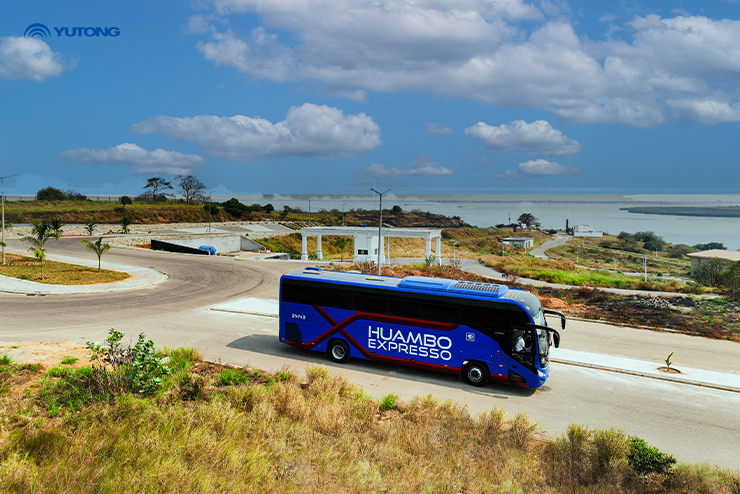
Conclusion
Deciding on FWD versus RWD hinges on multiple criteria such as operational needs, terrain, and budget. FDW coaches, with their cost-effectiveness, fuel efficiency, and stability, excel in urban settings and on well-maintained roads. In contrast, RWD coaches demonstrate greater load-bearing capacity and hill-climbing performance under heavy loads or in harsh road conditions.
With a profound insight into and commitment to the African market, Yutong Coach provides high-quality coach solutions tailored to local needs. With a tech-savvy approach, the company has introduced products that can adapt to the variable road conditions in Africa complemented by thorough after-sales service and technical assistance.
Looking ahead, Yutong will continue to focus on refining service and innovating products to fuel Africa’s public transit progress.
Reference:
[1] https://www.transportafrica.org/understanding-public-transportation-in-africa/
[2] https://www.urban-transport-magazine.com/en/on-the-move-urban-mobility-solutions-for-a-sustainable-mozambique/#:~:text=Public%20transport%20in%20Maputo%20City,vi%5D%2C%20%5Bvii%5D.
[3] https://www.macrotrends.net/global-metrics/countries/AGO/angola/population-growth-rate
Previous Industry-insights
Subscribe Now
Get updates you care about.
Submit
